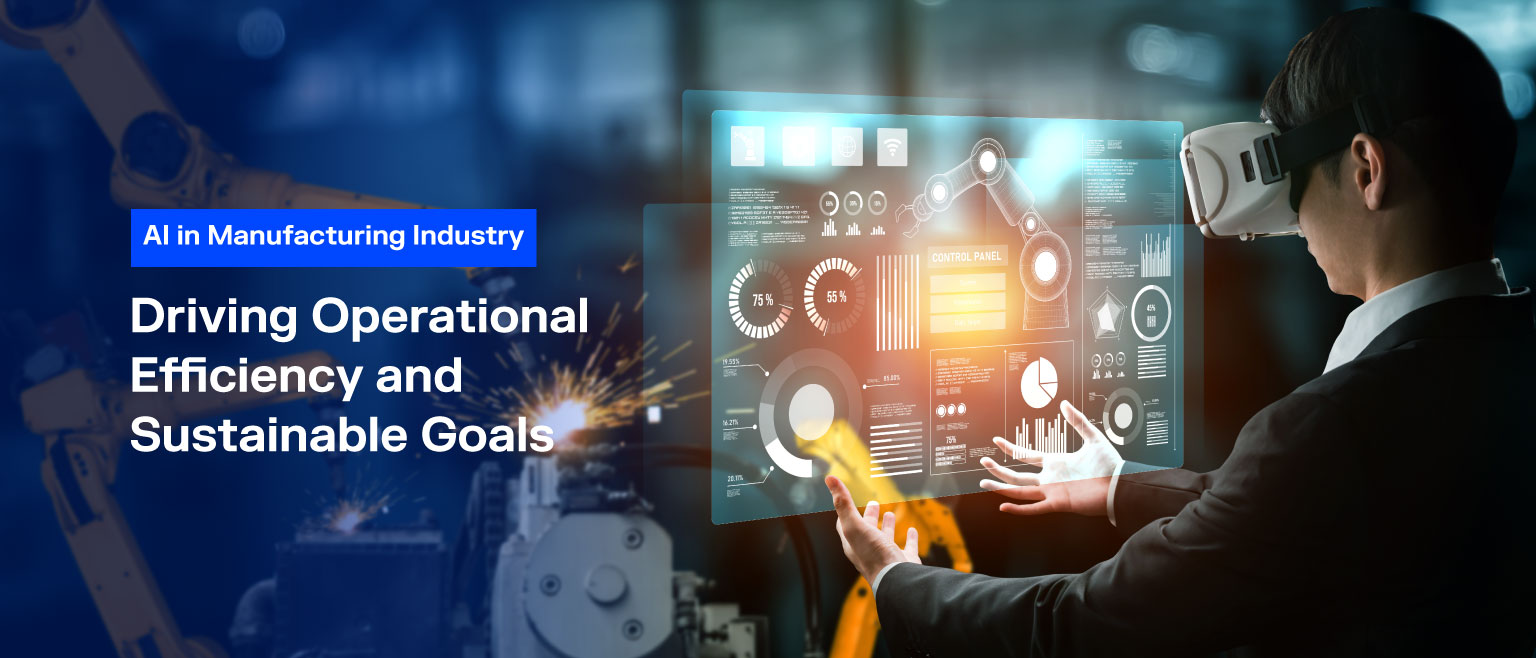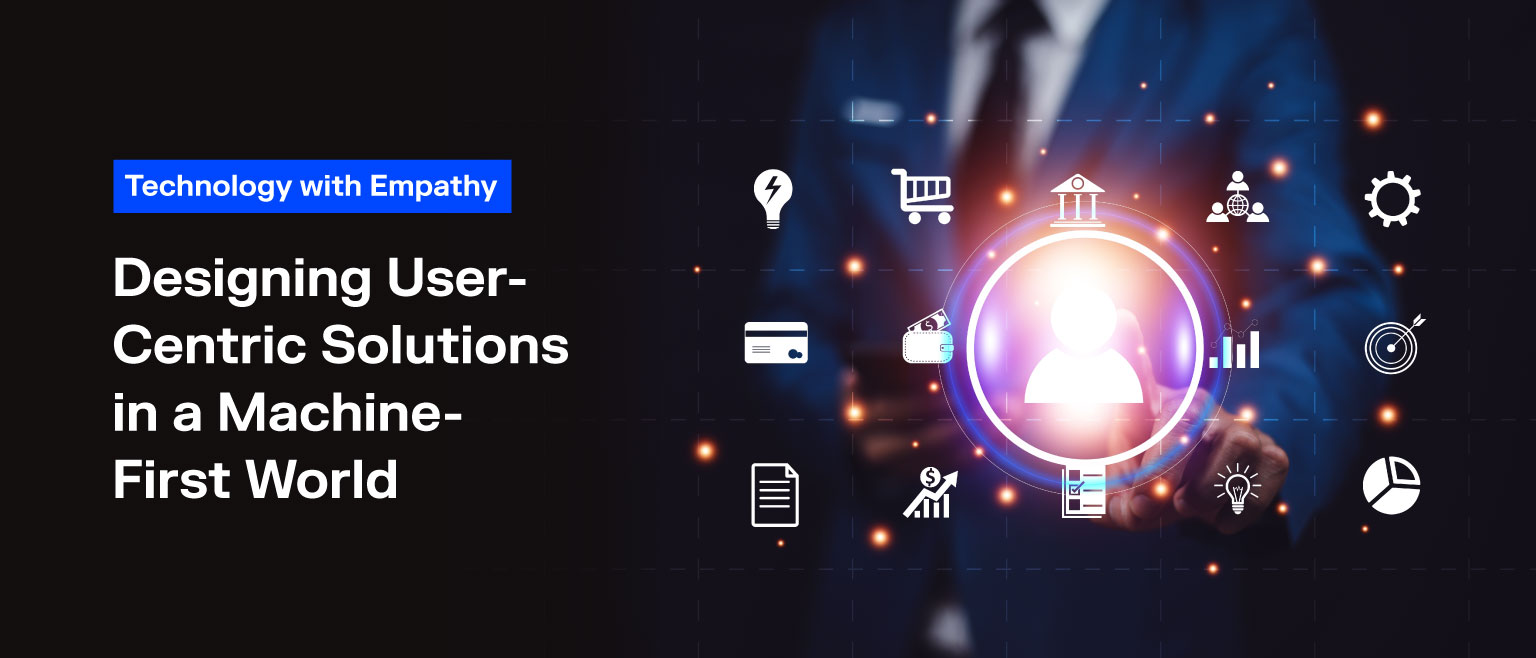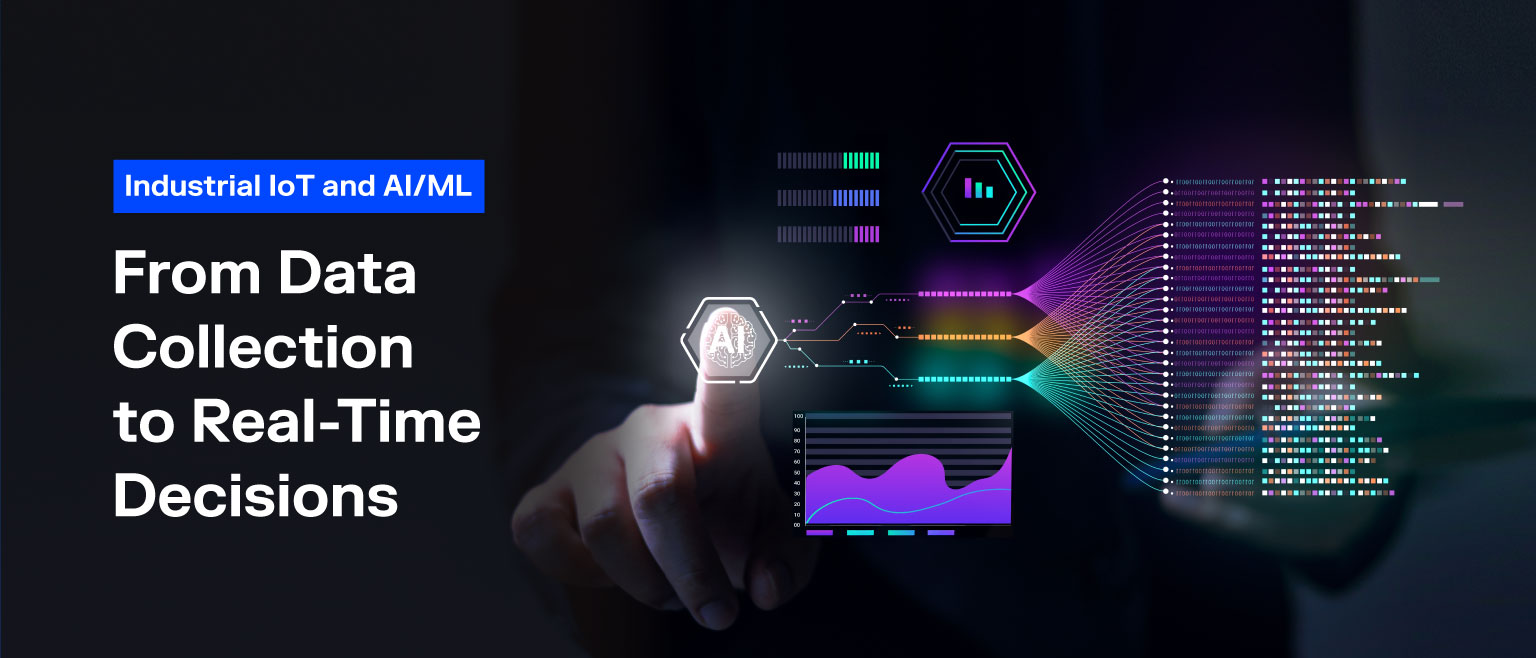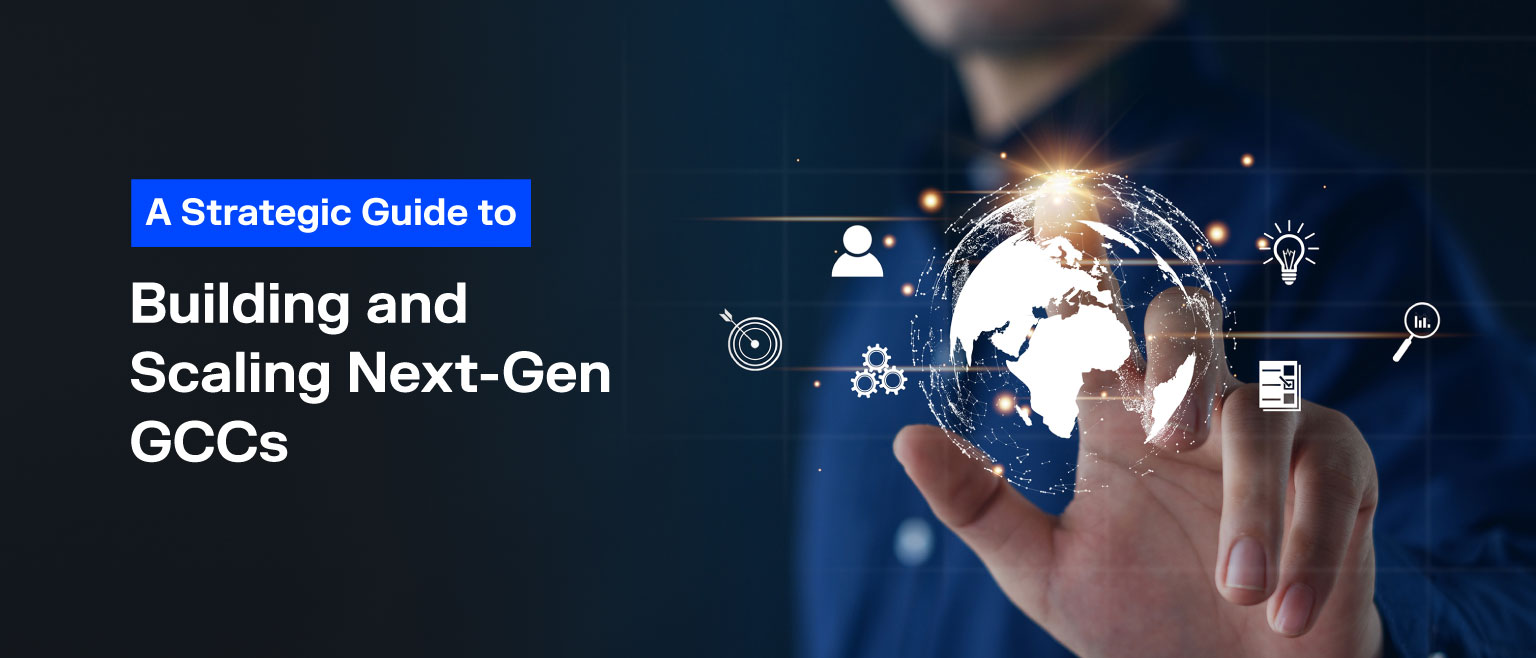AI in Manufacturing Industry: Driving Operational Efficiency and Sustainable Goals
AI, one of the biggest topics of discussion nowadays, is constantly evolving. True to its potential, AI has been radically reshaping industries by enhancing their operational efficiency and helping them achieve sustainability goals.
If we particularly talk about the manufacturing industry, it is undoubtedly one of the biggest beneficiaries of AI today. It leverages data and algorithms to make products faster and better.
Accenture’s research shows that AI could enrich the manufacturing sector with an extra $3.8 trillion GVA in 2035.
In simple language, AI in the manufacturing industry involves computer systems performing tasks that typically require human intelligence. With little human input, these systems make decisions by learning from data and spotting patterns
The Manufacturing Shift: Less Waste, More Control
With AI in the manufacturing industry, there is no longer a reliance on manual checks as processes have become automated, predictive, optimized, and proactive while improving quality control and cutting costs.
Predictive maintenance represents one of the biggest shifts that AI brings to manufacturing. Earlier, manufacturers used to deal with breakdowns after they occurred. But now, AI models predict issues likely to occur before they occur by using embedded sensors to analyze real-time data. Not only does this avoid expensive downtime, but it also prevents energy waste from inefficient systems.
29.7% of AI implementations in manufacturing focus on maintaining machinery and production assets, according to Forbes.
Then there’s quality control, where AI-powered vision systems spot defects on the assembly line. These defects are often microscopic ones that can be easily missed by the human eye, resulting in minimal waste.
Another area is inventory and supply chain optimization. In this case, AI forecasts demand patterns to manage inventory accurately, ensuring that manufacturers don’t overproduce. Along with being efficient, it also reduces waste and emissions, which helps them meet their sustainability goals.
Design and Testing: Faster, Leaner, Greener
AI is also playing a major role in product design and testing by giving improvement suggestions and imitating how the new products are going to perform. AI-powered generative design software suggests several design iterations based on specific business goals, resulting in product designs that effectively meet market demands. This not only enhances innovation but also ensures material efficiency, which directly ties with sustainability goals.
Research by Capgemini reveals that currently, 44% of organizations in the manufacturing sector are implementing AI prototypes.
After-Sales and Services
After the products are sold, AI helps in enhancing the customer experience and support. Chatbots quickly handle and reply to common customer queries. AI integrated into after-sales services facilitates issue resolution and personalizes interactions with customers.
And even when there are more complex issues, AI can help human agents by analyzing past cases and suggesting solutions based on them.
Challenges, Safety, and Ethics
Integrating AI into the manufacturing sector has multiple advantages but also brings critical challenges. Some common challenges are the environmental outcomes of training AI models and cyber safety. To handle these challenges, technical, safety, and ethical issues must be planned carefully to adopt AI.
There are also concerns about data privacy as AI collects a lot of data. Workers must be kept aware of what data the manufacturing company is collecting and how it will be used.
Bias in AI is another common problem that surfaces when training data isn’t diverse, leading to AI making unfair choices.
Furthermore, ethical considerations in the manufacturing process involving AI must be addressed to ensure that automation and data usage do not compromise ethical standards.
The Road Ahead
In a world grappling with climate change, supply chain disruptions, and resource scarcity, AI offers a rare win-win: make processes leaner, smarter, and greener.
It’s not about man vs. machine. It’s about man and machine, building a more efficient and sustainable world.
Related Blogs
Technology with Empathy: Designing User-Centric Solutions in a Machine-First World
Design is a funny word. Some people think design means how it looks. But of course, if you dig deeper, it’s really how it works. This quote was quoted by…
Industrial IoT and AI/ML: From Data Collection to Real-Time Decisions
Every industry, right now, is going through major changes due to the introduction of new technologies and innovation. And these innovations don’t just talk about making the process faster, but…
A Strategic Guide to Building and Scaling Next-Gen GCCs
The Global Capability Centre (GCC) model in India is undergoing its most significant transformation yet. Once primarily viewed through the lens of cost arbitrage, the Indian GCC is now transitioning…





